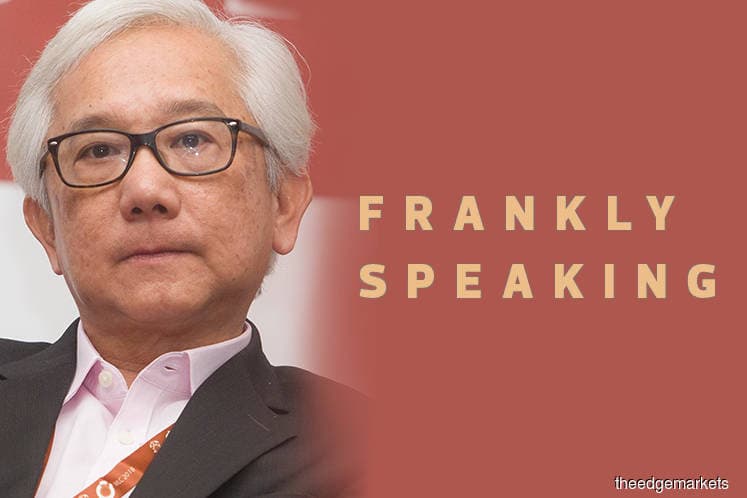
The answer to my question, some would say, is that it is the prime minister who is in charge since he is the head of government and is ultimately responsible. While that may be true, the PM cannot possibly pay full attention to the economy as he has many other matters to handle.
For most of the 22 years of his first stint as PM, Tun Dr Mahathir Mohamad always had an economic “fixer” by his side to execute economic and financial policies. There was always a “go-to” person if anyone wanted to present an idea or to get things done.
When Mahathir became PM in 1981, Tengku Razaleigh Hamzah was minister of finance. But the two men were never close and in 1984, Mahathir used the excuse of Razaleigh’s defeat in the Umno party polls (he challenged and lost to incumbent deputy president Tun Musa Hitam) to bring in Tun Daim Zainuddin as minister of finance. It was a backdoor entry as Daim first had to be appointed a senator since he was not a member of parliament.
But the two were soon to face economic and political headwinds.
A bad recession hit in 1984-85, followed by an internal Umno revolt triggered by the falling out with Musa in 1986. In the 1987 party polls, Mahathir survived by the skin of his teeth with a mere 43-vote majority against challenger Razaleigh.
After the narrow victory, Mahathir consolidated his political position.
But the reason why he ruled for many more years after that close shave was that the economy recovered and went on to record its fastest period of expansion until the Asian financial crisis in 1997/98.
Economic liberalisation of the manufacturing sector and the privatisation of state-owned entities became the driving force of growth, jobs and wealth creation.
Daim was the all-powerful economic czar and soon became the target of critics who accused him of building up a group of business cronies.
In 1991, he surprised everyone by handing over his job to Datuk Seri Anwar Ibrahim. The economy was in good shape and Anwar was to benefit from a super bull run on the stock market under his watch.
Things, however, fell apart when Mahathir sacked Anwar in 1998 and brought back Daim, first as economic adviser and then as finance minister. But by then, Mahathir had another person by his side — Tan Sri Nor Mohamad Yakcop, who helped craft the capital controls regime that stopped the attacks on the ringgit.
In 2001, Daim resigned abruptly because of differences over how to handle the rescue of certain companies.
Mahathir took on the finance minister’s post and created MoF2 for Nor Mohamad, who in effect was running the show. He was to continue in this role under Tun Abdullah Ahmad Badawi , who was PM till 2009.
During his time under Mahathir and Abdullah, Nor Mohamed was responsible for clearing the thousands of unsold properties, cleaning up bad debts at banks and restructuring government-linked companies.
Both Daim and Nor Mohamed succeeded because during their time, they were clearly the person in charge of the country’s economy and finances. They were first among equals in Cabinet. They held the levers of power over the treasury, banking system and market regulators.
The situation today is not the same.
In Mahathir’s second time as PM, there is no one person who seems to be fully in charge and responsible for the economy.
Daim is back again. He certainly has a big say, but without a Cabinet post, he will have his limitations. Indeed, he recently voiced his frustration at the slow pace of action to help the poor. His brother-in-law Dr Muhammad Khalid is economic adviser to the PM and wields some influence but is far from being the go-to person.
The two men have asserted themselves in the appointments of the chief executives of GLCs and heads of regulatory agencies but have not shown their hand with economic policy initiatives. It is not easy to drive policies from the backroom.
Then, there are Economic Affairs Minister Datuk Seri Azmin Ali and Finance Minister Lim Guan Eng.
Historically, it is the finance minister who is responsible for the economy.
But this time around, Mahathir decided — possibly for political reasons as he was appointing a non-Malay as MOF for the first time since 1969 — to create a Ministry for Economic Affairs and some jurisdictions under MOF are now under Azmin.
The PM has dispersed power over economic and financial affairs among Daim, Guan Eng, Azmin and Muhammad. Some say this is good for check and balance. The net effect, however, is that it raises the question — while the economy needs urgent fixing, who is going to be the one to pick up the ball and run with it?
Save by subscribing to us for your print and/or digital copy.
P/S: The Edge is also available on Apple's AppStore and Androids' Google Play.